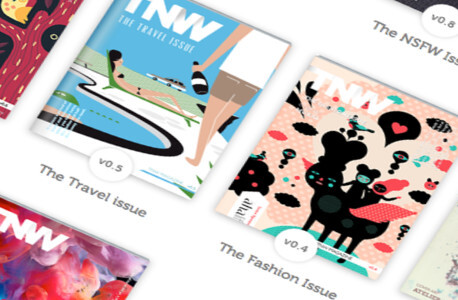
When my significant other and I started living together we were both at the beginning of our careers. I started as a management trainee at a large company and he invested all his time in a new startup. I was the main income earner at that time and was happy in that role: I had control over our income and spending and had the freedom to do what I wanted while he took a gamble on his startup.
The gamble paid off: he sold his company in 1999, and made millions. We were thrilled! And not only because of the money, because I actually couldn’t quite picture what this amount of money meant, but mainly because of this huge success. Of course we partied and we bought a big house. One day he came home in a silver Jaguar.
He sold his company for shares and was in a lock-in in the first years. This was at the top of the dotcom boom, and when the market crashed, those shares dropped so fast, we couldn’t even keep up… nor sell. By 2001 it was all gone. At this point we had debts instead of millions, we had a mortgage we couldn’t afford, and we were expecting our first child.
First there was a slight panic (read: total panic!! sleepless nights!!). But once we sorted it out in our heads and pictured what we would do next we were “sort of ok” with it. I had heard about a guy who lived on a campground nearby Amsterdam to save money. We could sell the car and the house at a loss (the housing market was not doing that well at the time) and pay off our debts while living on that campground. Living in a mobile home with my husband and a newborn seemed romantic – and also quite horrible in the Dutch winters – but the idea really started to appeal to me.
In the end, we couldn’t sell the house at all, so we just decided that we had to work extra hard to stay there. Now we both own businesses and these are doing well. Maybe we we’re extra driven and motivated by the fact that we had to make money to afford that house and support the two kids we now have. It also feels good to both bring in the money as it brings a certain kind of balance to the relationship.
From all of this I learned a couple of things:
- Apparently, money is not a necessary ingredient for happiness
- The lack of money turned out to be a great starting point for starting a new business
- I don’t ever want to be dependent on someone else for money
- Being able to take care of myself is a very important part of my relationship
- I know I can handle “losing it all”, so now I can take all the risk I want. (But note that I live in a country where “not being able to afford a new flat screen TV” is considered being poor).
These days I meet a lot of people who want to set up their own businesses, and I often wonder what their drive is. It’s hard work and sometimes you have to take huge risks. Are they in it for the money? Do they just want to live the startup lifestyle? Is their business part of a larger goal?
Mark Zuckerberg once said “We don’t build services to make money; we make money to build better services,” [source]. So Is money the end-goal or is it the enabler of your business?
Do you want to get rich or do you want to change the world? (Or as Steve Jobs once famously said to John Sculley: “Do you want to sell sugar water for the rest of your life, or do you want to come with me and change the world?”). Bill Gates might have been motivated by money when he set up Microsoft, but now he’s giving it all away again – making a huge impact.
What are the drivers for what we do in life? Is money a good driver? Will money make you successful or miserable? Is money enough of a driver to set up a business? Or is it an enabler? Four startup founders who are in the midst of setting up their new company explain what drives them.
Renato Valdes Olmos, Human.co
Most entrepreneurs can find a way to make money, whether that’s through bootstrapping or raising a round. Once you understand how to play that game, it becomes a given, not a challenge. The products I use most are usually built by companies who’s founders aren’t driven by eventual financial upsides. My personal driver is to do what I love, every single day of the year. Making money through entrepreneurship is not that hard. The hard part is to find something that you can devote your life to.
Edial Dekker, Gidsy – @Edial
If you raise an investment and want to make a big sustainable company, you have to make money at some point. For Gidsy, it means making event organizers successful. We get motivated, by knowing that around 90% of the earnings, goes to organizers, instead of us.
Timan Rebel, Snowsciety
A startup business has the primary responsibility to grow as big and successful as possible, whatever the impact on the lives of the entrepreneurs. It is a highly uncertain way of living and I am sure I have lost some friends and probably even girlfriends along the way. Founders of a startup are competing for success, fame and glory, although some of them, including me, are also in it because they really like the process. After hitting the jackpot, a lot of them jump back into the startup life to repeat their success. “Once your lucky twice your good”, Sarah Lacy wrote and I strongly believe in this statement.
It is not the money though. Money does not make you happy, I know about this first hand, but it is a great enabler. Thanks to a previous exit I have some ‘fuck-you’ money and can to a certain extent do what I want and have less need of early investors. Money buys you freedom, but in the end it is not my drive. It is the feeling you get when thousands or millions use your product and the impact you have on peoples lives where I get out of bed for in the morning. Running a startup is a lifestyle.
Salar al Khafaji, Silk – @Salar
Money isn’t really a strong motivator for me for the things I enjoy working on. In fact, the only reason I’d actually want to be wealthy is so I can work on bigger projects that would be hard to fund or justify today. What actually drives me is harder to explain, but there is something deeply gratifying about building things that didn’t exist before, and seeing other people use them. I guess I always wanted to be an inventor when I was little and this is the closest I can get to that idea today.
Get the TNW newsletter
Get the most important tech news in your inbox each week.




